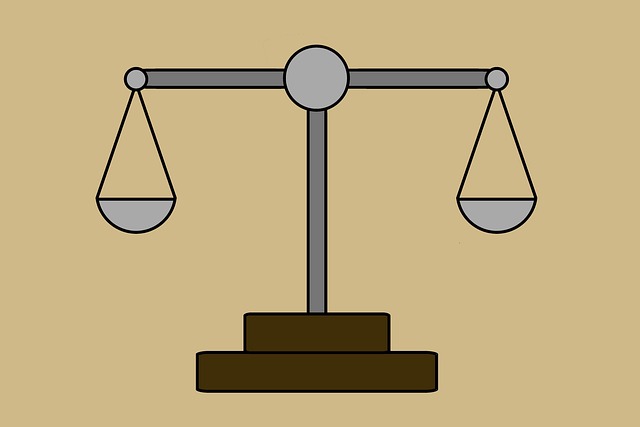Oregon probate law provides a structured framework for managing deceased individuals' estates, including procedures for handling wills, determining heirs, and appointing executors. This meticulous process ensures compliance while honoring the deceased's wishes and protecting beneficiaries' interests. Common challenges include misinterpretation of legal requirements and missing deadlines, making early professional guidance from an experienced Oregon probate attorney essential to avoid costly mistakes. Appeals are common due to complexity; aggrieved parties have 30 days to file a Notice of Appeal based on will interpretation errors, misapplications of estate laws, or procedural irregularities. Strategic legal advice is crucial for navigating these complex matters and ensuring all rights are protected under Oregon probate law.
“Unraveling the complexities of Oregon probate law is essential for anyone navigating estate administration. This comprehensive guide offers invaluable insights into the state’s legal framework, walking you through the intricate process from petitioning to asset distribution. Learn about the roles and responsibilities of executors/administrators and gain strategic knowledge to steer clear of common pitfalls. Discover the grounds for appeals and the procedural steps involved, emphasizing the critical role of legal professionals in Oregon probate matters.”
- Understanding Oregon Probate Law: An Overview of the Legal Framework
- The Process of Probate: From Petition to Distribution of Assets
- Who Can Act as an Executor/Administrators and Their Responsibilities
- Navigating Complexities: Challenges and Common Mistakes to Avoid
- Appeals in Oregon Probate Cases: Grounds for Appeal and Procedural Steps
- Understanding the Role of a Legal Professional in Oregon Probate Matters
Understanding Oregon Probate Law: An Overview of the Legal Framework

Oregon probate law outlines a comprehensive framework governing the administration and distribution of deceased individuals’ estates. It establishes procedures for handling wills, determining heirs, and managing assets to ensure fairness and legal compliance. Understanding this legal landscape is crucial for anyone navigating the complexities of estate planning or facing probate proceedings in Oregon.
The state’s laws provide a structured approach to probate, including guidelines on filing petitions, conducting hearings, and appointing executors or administrators. These processes ensure that estates are managed transparently, with all parties’ rights protected. Oregon probate law also addresses appeals and disputes, offering avenues for individuals to challenge decisions and protect their interests when faced with complex estate matters.
The Process of Probate: From Petition to Distribution of Assets

The process of probate in Oregon involves several steps, guided by Oregon probate law. It begins with a petition—a legal document filed by an interested party (often a close relative) to initiate the probate proceedings. This petition includes essential information about the deceased’s estate, such as the value of assets and debts. Once the court approves the petition, a personal representative (often a named executor in the will) is appointed to oversee the administration of the estate.
This representative is responsible for collecting and managing the deceased’s assets, paying off debts and taxes, and distributing the remaining assets according to the terms of the will or Oregon’s intestate laws if there is no valid will. The entire process aims to ensure that the wishes of the deceased are carried out while also protecting the interests of beneficiaries and ensuring all legal requirements are met under Oregon probate law.
Who Can Act as an Executor/Administrators and Their Responsibilities

In Oregon, anyone named as an executor or administrator in a will or appointed by a court can serve in this role. This can include family members, close friends, or even professional fiduciaries. The primary responsibility of an executor/administrator is to manage and distribute the deceased’s estate according to the terms of the will or Oregon probate law. They are tasked with collecting and safeguarding assets, paying debts and taxes, and ensuring that beneficiaries receive their rightful share.
Their duties extend to overseeing the entire probate process, which involves filing necessary documents with the court, providing transparency through regular accountings, and complying with legal requirements. Executors/administrators must act in the best interests of the estate and its beneficiaries, adhering strictly to the law to avoid any potential disputes or legal complications under Oregon probate law.
Navigating Complexities: Challenges and Common Mistakes to Avoid

Navigating the complexities of Oregon probate law can be challenging, especially for those unfamiliar with the process. Common mistakes often arise from misinterpreting legal requirements or failing to recognize time-sensitive actions. For instance, many individuals overlook the importance of timely filing petitions, which can result in case delays or even dismissal. Another frequent error is inadequate communication between involved parties, leading to misunderstandings and potential disputes.
To avoid these pitfalls, it’s crucial to seek professional guidance early on. Engaging an experienced probate attorney in Oregon can provide much-needed clarity and ensure compliance with state laws. They can help navigate the intricate procedures, from preparing necessary documents to representing you in court, minimizing the risk of mistakes that could impact the outcome of your case.
Appeals in Oregon Probate Cases: Grounds for Appeal and Procedural Steps

In Oregon, probate cases can be complex and emotionally charged, making appeals a common occurrence. Grounds for appeal in Oregon probate law include errors in will interpretation, misapplications of estate laws, and procedural irregularities during the probate process. If an aggrieved party believes the probate court made a mistake that significantly impacts their interests, they have the right to challenge it.
The procedural steps for appealing a probate decision in Oregon involve filing a Notice of Appeal within 30 days of the judgment or order being appealed. This must be followed by preparing and submitting appellate briefs, which outline the legal arguments and evidence supporting the appeal. The Oregon Court of Appeals reviews the case and may affirm, reverse, or modify the original decision based on the merits of the appeal and adherence to state probate law.
Understanding the Role of a Legal Professional in Oregon Probate Matters

Navigating Oregon probate matters can be complex, which is why involving a legal professional is often crucial. These experts are well-versed in Oregon probate law and its nuances, ensuring that every step of the process is handled with precision. They guide clients through will preparation, estate administration, and any potential appeals, providing invaluable support during what can be an emotionally challenging time.
Legal professionals offer a range of services, from assisting with the filing of necessary documents to representing clients in court if disputes arise. Their knowledge allows them to offer strategic advice tailored to each case, helping to minimize delays and potential legal pitfalls. This expertise is particularly beneficial when dealing with complex estates or contested will situations, ensuring that all parties’ rights are protected under Oregon probate law.






